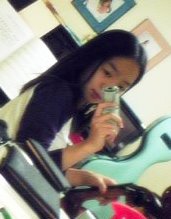
*Entry of your choice
*Original novel vs. Translated version
Famous books are translated into hundreds of languages, and Animal Farm is one of them. George Orwell is a really famous author, and I have seen this novel on the Korean high school recommended reading list. So I tried reading Animal Farm in Korean version during Lunar Vacation. I was pretty surprised for what I have gotten out of it. Since it hadn’t been a long time, reading Animal Farm in English, I didn’t get anything new; the story was really familiar to me. However, something was different! I thought over and over until I finally figured out that the mood was a little different. Dystopian mood was a lot stronger in the English version. I’d say it’s because of the variety of words a language can have. Korean version really sounded like a storybook or a novel without the explanation in the back of the book saying that it is symbolizing the Soviet Union. In contrast, when I read the original book, I could actually connect the story into the history, even without reading the analysis. Maybe it’s because the translator couldn’t find exact word for word meaning Korean, and had to use weaker word choice. This means that if you don’t know English and wanted to really enjoy Animal Farm or some kind of American Literature fully, it isn’t possible. That is one reason that almost everyone around the world tries to learn English and be fluent with it. Before, I thought it would be as good to read a novel in a translated version, but now, I don’t believe so. I should try to read the novels I read in Korean translated version, again in English and search for the real beauty of the book.
*Original novel vs. Translated version
Famous books are translated into hundreds of languages, and Animal Farm is one of them. George Orwell is a really famous author, and I have seen this novel on the Korean high school recommended reading list. So I tried reading Animal Farm in Korean version during Lunar Vacation. I was pretty surprised for what I have gotten out of it. Since it hadn’t been a long time, reading Animal Farm in English, I didn’t get anything new; the story was really familiar to me. However, something was different! I thought over and over until I finally figured out that the mood was a little different. Dystopian mood was a lot stronger in the English version. I’d say it’s because of the variety of words a language can have. Korean version really sounded like a storybook or a novel without the explanation in the back of the book saying that it is symbolizing the Soviet Union. In contrast, when I read the original book, I could actually connect the story into the history, even without reading the analysis. Maybe it’s because the translator couldn’t find exact word for word meaning Korean, and had to use weaker word choice. This means that if you don’t know English and wanted to really enjoy Animal Farm or some kind of American Literature fully, it isn’t possible. That is one reason that almost everyone around the world tries to learn English and be fluent with it. Before, I thought it would be as good to read a novel in a translated version, but now, I don’t believe so. I should try to read the novels I read in Korean translated version, again in English and search for the real beauty of the book.






 *What is the major theme of this novel?
*What is the major theme of this novel?